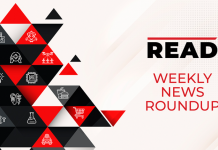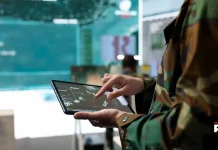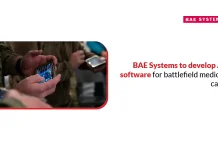Recent developments in technology have helped the healthcare industry to enhance its operation and provide better medical care services. There are several emerging technologies in this sector and one of them is mobile healthcare. It basically focuses on utilizing mobile devices to educate consumers or patients about preventive healthcare services. mHealth has gained immense popularity with rising usage of mobile phones and wearable smart devices.
mHealth also known as mobile health care refers to all medical and public health applications supported by mobile devices which includes mobile phones, patient monitoring devices, personal digital assistants and other wireless devices with ability to capture health data. It can also be used for disease surveillance, treatment support, epidemic outbreak tracking and chronic disease management.
What Is mHealth?
mHealth applications are software tools that can help consumers, patients, medical students, clinician and researchers to improve medical care as well as enhance public health systems.
It allows healthcare professionals to diagnose, monitor and provide primary treatment via mobile devices without being physically examined. With mobile health applications, healthcare professionals are able to provide solutions to many problems through a single application.
Difference Between mHealth And Telehealth
While both mHealth and telehealth focuses on utilization of technology to provide better healthcare service, there are some distinct differences between these two. In terms of telehealth, it refers to all instances of healthcare via the use of modern technology. It basically involves clinician-to-clinician, clinician-to-patient, as well as patient-to-patient interaction.
Telehealth communication usually takes place via videoconferencing between a physician or nurse and the patient. On the other hand, mHealth refers to the concept of mobile self-care. It utilizes technologies and smart devices such as smartphone, tablet apps, wearable devices that enable consumers or patients to record their own health data, without any assistance of healthcare professionals.
Types Of mHealth Applications
The mobile healthcare applications are divided into several categories and some of them are as discussed below.
1. Remote monitoring apps
It is the most commonly used mobile health application. The remote monitoring apps enables healthcare professionals to take care of their patients remotely I,e, even when the patients are at home. Such applications also provide insights of patient’s track blood glucose levels, oxygen level, heart rate, blood pressure and other data without actually visiting the patient.
2. Clinical and diagnostic apps
Clinical and diagnostic apps enable the doctors to collect data of the patients, analyze and share it. This app allows the healthcare professionals to view lab results, check electronic health records, or even perform digital imaging. In addition to this, it also helps the patients and doctors to check the symptoms and diagnose the illness. Patients can also schedule their appointments using such an app.
3. Healthy lifestyle apps
Such types of lifestyle apps are developed with the aim of building healthy living around. These applications can check in several health metrics such as heart rate, diet, exercise, and sleep. Healthy lifestyle apps are more beneficial to patients who are suffering from chronic health conditions such as heart disease or diabetes.
Benefits Of mHealth
One of the key benefits of mHealth applications is that it saves a lot of time and cost in healthcare services, by reducing the number of visits and routine check ups. Along with this, there are several other benefits of mobile healthcare as follows.
● It enables healthcare professionals to reach the most up-to-date clinical guidelines, collaborate with colleagues and interact with patients through electronic devices.
● mHealth offers remote data collection, which helps to reduce the health information gaps in developing countries. This helps healthcare professionals to ensure effectiveness of public health initiatives.
● Such applications allow patients to make or receive phone calls as well as send and receive texts or voicemails on health education, treatment, and commitment.
● With its SMS alarm system, mHealth applications help to manage and effectively influence patient behavior patterns.
● Advanced mHealth applications can also support drug adherence and chronic care management, this provides optimized access to quality care.
Conclusion
With more research and development in the mobile healthcare sector and adoption of 5G network technology, healthcare professionals will be able to provide fast and better medical care services. This will also help medical students and researchers to obtain any clinical reference and guidance through mobile devices anywhere any time. As utilization of mHealth applications will increase, the healthcare industry will be more effective and efficient in coming years.




